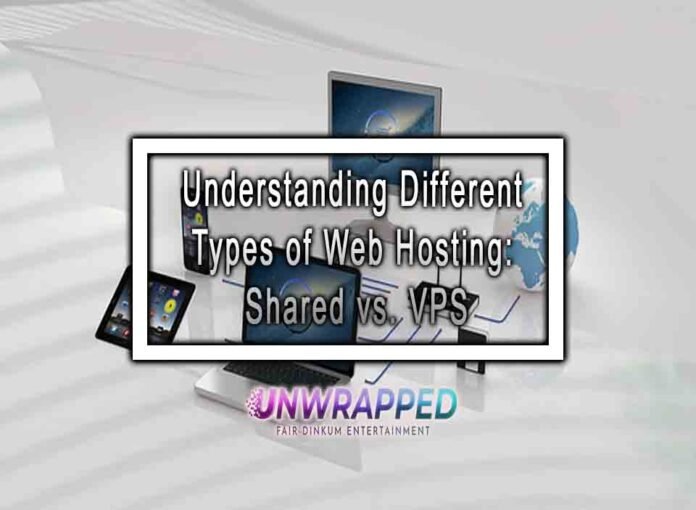In the ever-expanding digital landscape, having a reliable web hosting solution is as crucial as having a great domain name and well-designed website. Whether you’re launching a personal blog, an eCommerce store, or a portfolio site for your growing business, the quality of your hosting determines everything from page loading speed to site security and scalability. Two of the most popular hosting options that website owners often weigh against each other are shared hosting and VPS (Virtual Private Server) hosting.
This comprehensive guide will walk you through what these hosting types mean, how they work, and the key differences that can determine which one is the best fit for your project. By the end, you’ll have a clear understanding of shared vs. VPS hosting and feel empowered to choose the solution that aligns perfectly with your website’s goals, audience, and growth plan.
Why Your Hosting Choice Matters
Before we jump into the specifics of shared and VPS hosting, let’s emphasize why selecting the right hosting plan is so important. Your hosting influences:
- Website Performance: Faster load times improve user experience, keep visitors on your site longer, and can even boost your rankings in search engines like Google and Bing.
- Reliability and Uptime: A stable hosting environment means fewer disruptions. Downtime can frustrate users and cause lost sales or credibility.
- Security Measures: Solid hosting providers add layers of protection—from firewalls to regular backups—minimizing the risk of breaches or data loss.
- Scalability and Growth: As your traffic grows, your hosting plan must be able to handle increased resource demands without stalling your website’s performance.
- Budget and Value: Balancing cost with features and resources is key. The right hosting solution delivers value without overextending your budget.
Your choice isn’t just technical; it affects your business’s success, user satisfaction, and long-term online presence. Now, let’s explore shared and VPS hosting in detail.
What Is Shared Hosting?
Shared hosting is the most common entry-level hosting option on the market. In a shared hosting setup, your website resides on a single server that it shares with multiple other websites. Think of it like renting a room in a large apartment building—you have your own space, but you share common resources such as water, electricity, and perhaps even the laundry area.
Key Characteristics of Shared Hosting:
- Shared Resources: CPU, RAM, storage, and bandwidth are divided among all the websites on the same server.
- Lower Cost: Because you share server costs with many other users, monthly fees tend to be very affordable—often just a few dollars a month for starter plans.
- Managed Environment: The hosting provider typically handles server maintenance, updates, and security patches, making it beginner-friendly.
- Limited Customization: Since you don’t have root access or dedicated resources, you can’t deeply customize server settings. You’re mostly limited to what the host provides in terms of configurations.
- Performance Variations: If a neighboring site experiences a traffic surge, it can consume more server resources, potentially slowing down your website.
Who Should Consider Shared Hosting?
- Beginners and Hobbyists: If you’re just starting a personal blog, small hobby site, or a simple informational website, shared hosting’s low cost and ease of use are attractive.
- Tight Budgets: Shared hosting is ideal when you need a stable web presence without breaking the bank.
- Low to Moderate Traffic: If you expect a few thousand visitors per month rather than tens of thousands or more, shared hosting can comfortably meet your needs.
Shared hosting offers a simple and affordable way to get online, but it’s not without its drawbacks. The lack of guaranteed resources and potential for “noisy neighbors” may limit your site’s performance and growth potential over time.
What Is VPS Hosting?
VPS (Virtual Private Server) hosting is a more advanced hosting solution that bridges the gap between shared hosting and dedicated servers. In VPS hosting, a physical server is divided into multiple virtual compartments—each acting like its own mini-server with dedicated resources allocated exclusively to one user. This virtualization technology ensures that what happens in one VPS environment doesn’t affect others on the same physical server.
Key Characteristics of VPS Hosting:
- Dedicated Resources: CPU cores, RAM, and storage are allocated to your VPS environment. Your site’s performance is less affected by other websites.
- Increased Control: VPS hosting grants root access (in most cases), enabling you to configure server settings, install custom software, and optimize performance.
- Scalability: Resources can often be scaled up (or down) easily. As your site grows, you can upgrade your VPS plan without migrating to a new host or a different type of server.
- Better Isolation: VPS hosting provides a more secure and stable environment. Issues caused by neighboring sites are far less common.
- Slightly Higher Cost: VPS hosting is more expensive than shared hosting but still more affordable than renting a dedicated server.
Who Should Consider VPS Hosting?
- Growing Businesses and Online Stores: As traffic, product lines, and customer interactions increase, a VPS can handle heavier loads without performance drops.
- Resource-Intensive Websites: If you run a multimedia-rich blog, membership site, or a community forum, the extra resources ensure faster load times and improved reliability.
- Technical Enthusiasts and Developers: If you want to customize server configurations, experiment with various environments, or fine-tune performance, VPS hosting provides that flexibility.
VPS hosting is a compelling option for those who have outgrown shared hosting’s constraints or desire more server control and reliable performance without the expense of a dedicated server.
Key Differences Between Shared and VPS Hosting
Now that we’ve defined both shared and VPS hosting, let’s break down their differences more explicitly. Understanding these distinctions will help you make an informed decision that aligns perfectly with your needs and future plans.
1. Performance and Speed
- Shared Hosting: Performance can be inconsistent. Since multiple websites share resources, a sudden traffic spike on another site may slow yours down. You have little control over this resource allocation.
- VPS Hosting: With dedicated resources and a virtualized environment, performance remains more stable. Your site loads faster and can handle traffic bursts more effectively.
2. Control and Customization
- Shared Hosting: You typically have limited customization options. The host sets server configurations, and you can’t usually install custom server-level software.
- VPS Hosting: Greater freedom to tweak server settings. Root access often lets you optimize caching, security measures, and software installations to suit your specific requirements.
3. Security and Isolation
- Shared Hosting: Security is generally robust at the host level, but if a neighboring site on your server is compromised, it could pose risks. Separation exists, but it’s not as complete as on a VPS.
- VPS Hosting: VPS environments isolate your website’s resources and data from others on the same physical server. This isolation reduces the “neighbor effect” and offers a more secure framework.
4. Scalability
- Shared Hosting: Scaling resources (like RAM or CPU) often requires upgrading to a higher-tier shared plan. Even then, you’re still sharing resources.
- VPS Hosting: With VPS hosting, scaling up is straightforward. Need more RAM or CPU power? Simply upgrade your VPS plan without migrating to an entirely different hosting structure.
5. Cost
- Shared Hosting: Inexpensive entry-level plans make shared hosting the most cost-effective choice, especially for new or hobby sites.
- VPS Hosting: More expensive than shared hosting but still affordable compared to dedicated servers. You pay for the added stability, performance, and control.
In Short:
- Choose shared hosting if you’re just starting, have a limited budget, or anticipate modest traffic.
- Choose VPS hosting if you need more reliable performance, greater control, enhanced security, and the option to scale resources easily.
Additional Factors to Consider
While understanding shared vs. VPS is essential, don’t forget to consider other hosting factors that may influence your decision:
- Technical Expertise:
- If you’re not comfortable managing servers or tweaking configurations, managed VPS hosting or sticking with shared hosting might be best.
- If you have developer support or are willing to learn server management, a VPS can be a powerful playground.
- Expected Traffic Growth:
- Are you launching a brand-new site or do you already have a growing audience?
- If you expect rapid growth, starting with VPS hosting can save you from migration headaches later.
- Type of Website:
- A small blog or a static site may never need more than a quality shared plan.
- An online store, content-heavy site, or community forum likely requires VPS resources for optimal user experience.
- Security and Compliance Requirements:
- Handling sensitive user data or running membership sites may necessitate tighter security and isolation that VPS hosting offers.
- Compliance with regulations like GDPR may influence your choice, as VPS hosting gives you more control over data handling.
- Budget Constraints:
- Shared hosting is often sold at promotional rates that are hard to ignore, ideal for tight budgets or initial testing phases.
- VPS hosting, while costlier, could save money in the long run if it prevents downtime or performance-related losses.
Can You Start with Shared Hosting and Then Upgrade to VPS?
One common question is whether you should start with shared hosting and move up to VPS later. The good news? Many hosting providers make this transition relatively simple. Here’s why starting small and upgrading can be a savvy strategy:
- Cost Management: If you’re unsure about future traffic or revenue streams, starting with shared hosting minimizes expenses upfront.
- Reduced Complexity at Launch: Setting up your site on a shared plan is straightforward. As your skills and audience grow, you can transition to VPS once you fully grasp your needs.
- Less Risk: If you’re just testing an idea or running a personal blog, shared hosting gives you time to evaluate your website’s long-term potential before investing in a VPS plan.
When the time comes to upgrade, look for a hosting provider that offers seamless migration. Some hosts will handle the transfer for you—minimizing downtime and ensuring a smooth transition.
The Role of Managed Hosting Services
It’s worth noting that both shared and VPS hosting can be managed or unmanaged. With managed hosting, the provider takes care of server maintenance, updates, security patches, and sometimes even performance optimizations. This can be particularly beneficial if you’re not technically inclined or don’t want to spend time dealing with server-side tasks.
Managed Shared Hosting:
- The host handles all technical aspects while you focus on building your site and content.
- Lower cost and less control, perfect for beginners wanting simplicity.
Managed VPS Hosting:
- Ideal for those who want the benefits of VPS (dedicated resources, better performance) but without the stress of server management.
- More expensive than unmanaged VPS, but time-saving and hassle-free.
Unmanaged VPS Hosting:
- Gives you maximum control but requires technical know-how.
- You’re responsible for handling updates, security, and optimizations.
- Cheaper than managed VPS, but only recommended if you have the skills or a dedicated team.
Your comfort level with technical tasks can guide you here. If you value convenience and support, managed hosting is often worth the extra investment.
Common Myths and Misconceptions
Myth #1: VPS Is Overkill for Small Businesses.
While shared hosting can certainly handle many small businesses, if your site involves eCommerce, accepts online bookings, or hosts a large multimedia gallery, a VPS can ensure a smoother user experience. It doesn’t have to be “overkill” if it’s aligned with your goals.
Myth #2: Shared Hosting Is Always Slow and Unreliable.
Not all shared hosting is created equal. Some reputable providers use caching, SSD storage, and well-optimized servers to deliver decent speeds for modest websites. Researching host reviews and choosing a reliable provider can yield strong performance for small sites.
Myth #3: Upgrading from Shared to VPS Is Painful.
While a bit more complex than flipping a switch, many hosts offer streamlined migration tools or handle it for you. With proper planning and a cooperative support team, moving from shared to VPS can be seamless.
Making the Final Decision
The choice between shared and VPS hosting ultimately boils down to your website’s current size, anticipated growth, technical knowledge, and budget. Here’s a quick recap:
- Opt for Shared Hosting if:
- You’re just starting out, have a limited budget, and expect low to moderate traffic.
- You value simplicity and don’t need advanced customizations.
- Opt for VPS Hosting if:
- Your site demands more consistent performance and dedicated resources.
- You require the freedom to install custom software or fine-tune server configurations.
- You’re prepared to invest in scalability and potentially handle a bit more complexity.
In many cases, starting with shared hosting and transitioning to VPS down the road can be a strategic approach. Just keep an eye on your site’s performance metrics and user feedback—if you notice slowdowns or resource limitations, it’s probably time to make the move.
Conclusion: Aligning Your Hosting Choice with Your Goals
Your web hosting decision can shape the trajectory of your online presence. By understanding the fundamentals of shared vs. VPS hosting, you’ve taken a critical step toward choosing a solution that optimally supports your website’s purpose, whether that’s attracting visitors to a blog, scaling an online store, or showcasing your professional portfolio.
While cost, performance, customization, and scalability all factor into the equation, the best choice is the one that meets your current needs and paves the way for future growth. With careful planning and the insights you’ve gained here, you’re well-equipped to select a hosting environment that ensures smooth sailing for your online journey—today, tomorrow, and beyond.
Call to Action
Are you ready to confidently launch your website? First, pick a hosting plan that suits your requirements. These procedures will assist you in creating a strong foundation for your website, regardless of your level of experience as a webmaster. Good luck!


Click on the code below or the Hostinger image to enjoy 20% off when you purchase a plan with Hostinger.
Referral Code: 1LAINE09
If you need assistance, send a message to talktounwrapped@gmail.com.
See Also: Enhancing Website Security: SSL Certificates and More











